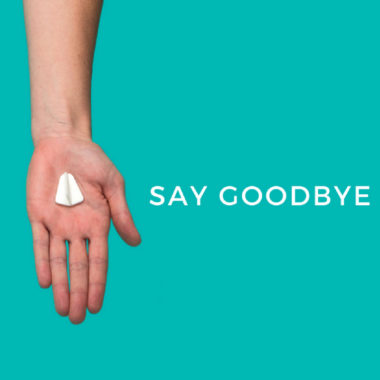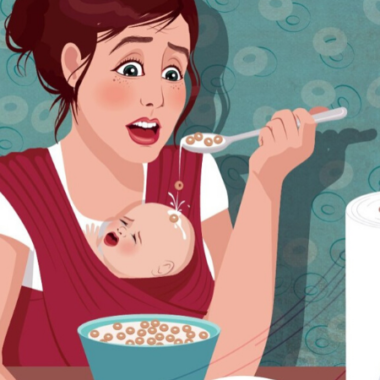Being a first-time parent is often accompanied by a boundless sense of joy. There are no words to qualify that feeling that courses through you when the nurse brings your newborn baby after the clean-up and you hold them in your arms. Many moms have described it like this: ‘a kind of love I never knew I was capable of experiencing’. Best believe it when we say the feeling is nothing short of remarkable.
However, the journey of parenting is not all mushy. It comes with a ton of responsibilities which may pose a bit of fright even to the most experienced of us. From settling into the new regimen to getting a hang of nursing, the early post-natal days is particularly filled with a barrage of questions especially for new moms.
Surprisingly, even though it is popular (and advisable) to find expectant parents reading everything they can find on baby-care, consensus points to the fact that nothing prepares you for the experience when the baby eventually comes. Suffice to say that life and your newborn baby conspire to throw you off balance with some unprecedented issues – like when the baby’s poop is so greenish it could pass for thoroughly mashed veggies or how your breasts leak so much so that you’re certain it’s a case of hyperlactation.
It is not uncommon to find that first-time moms have a barrage of questions that are unrivalled by a few things in the world. Yet, many still find themselves hesitant to ask for fear of appearing clueless. We must state here that instead of fear, it is important to recognize that carefulness and safety consciousness is a good-enough drive for any parent to want to learn more on their newly assumed role.

The following are 7 popular questions among new moms, answered:
- ‘When should I stop breastfeeding?’ – Globally, medical professionals agree on one thing: exclusive breastfeeding should be adopted for the first six months of life excluding every other liquid (including water). Ideally, after the 6-month mark, other foods can be added to the baby’s diet but breast milk should continue till the baby is a year old. This strict diet in the first few months of life is beneficial for both mother and child. While it provides the optimal nutrition that the baby needs, it also helps the uterus contract in new moms. Breastfeeding enhances the secretion of oxytocin which aids the contraction process known as ‘involution’. Putting this into consideration – along with any potential reasons why you cannot breastfeed for a year, weigh the pros and cons of each option you have, not forgetting that the decision is ultimately yours to make.
- ‘How often should bottles be sterilized?’ – It’s easy to say that baby bottles should be sterilized after each use; however, that is far from being realistic. Experts recommend a regular wash with soap and water after every use, then sterilizing at the end of the day. Moreover, frequent hand-washing and other good hygienic practices are equally important.
- ‘Can I spoil my baby by holding him/her too much?’ – Touching can help build the bonding and emotional attachment that must be established between parent and child. Experts do believe, however, that babies who are accustomed to being rocked to sleep will come to expect it as a norm as they grow older and sleeping patterns change. It is advisable, therefore, to lay them in their crib at night. Over time, they’ll start to sleep independently. However, we greatly believe that you cannot “spoil your baby”.
- ‘Is green poop normal? And how long does it last?’ – Just like in adults, the colour, texture and consistency of baby poop can be primarily based on their diet. Whatever the variation – brownish, light yellow or mustardy, notice the sequence and frequency of how many times they go. However, chalk-whitish, thick black or red poop should not be ignored as they could signal underlying problems. After the initial poop called ‘meconium’ which expels everything they consumed while still in the uterus (including bile, water, intestinal epithelial cells), chances are that their normal faecal matter will mostly be liquid in the first few months.
- ‘Must I dress my baby in multiple layers of clothing when going out?’ – Although outings should be stalled till a month or two post-delivery, if for any reason you have to go out with your baby, then, be sure to have them properly clothed. ‘Multiple’ clothing here is relative because you need to be weather-sensitive; we’d say you should do this always. Depending on your geographical location, the weather could range from blistering heat to blizzard snow. Agreed, no one should be going out at all in the latter. Paediatricians advise that babies should be dressed in one extra layer of clothing more than their parents. This is because the weather is bound to have more effect on their fragile bodies than it will on your fully grown frame. Also, don’t forget to keep a hat on hand as it helps cover your baby’s head both in sunny or cold weather.
- ‘Do all new moms experience bladder incontinence?’ – It is considered common for women who had vaginal births to experience lack of control due to the stretching of your genital muscles required to push your baby out. However, this is less so in caesarean births except the healing process is jeopardized. On the average, a few weeks or months postpartum will see things tighten down there; although depending on peculiarities during the delivery, some women never really get over it – with reports of women feeling a pee drop whenever they sneeze years after giving birth. Regular Kegel exercises are advised to help strengthen and regroup the muscles. Also, talking to your ob-gyn can help you better understand how to deal with it.
- ‘How long does it take for my body to snap back into shape?’ – There’s no one answer to this question. Your body will readjust based on DNA, pre-pregnancy weight, and your proclivity to exercising before you took in. Almost every question is about the baby, but this one pertains to you so don’t let anyone guilt-trip you about wanting to get your body back; it’s a good thing to want to remain desirable for your partner. However, we would advise that you should not push this issue immediately after birth. You want to give your body adequate time to heal from the stress of pregnancy and delivery. Remember our previous point about the uterus contracting? The past months have been an overwhelming journey and the return to ‘normalcy’ – or at least, the semblance of it would also take some time. From your belly button to the ‘Linea Nigra’ or black line on your belly, everything will set itself right in a natural way.
We’re sure you have more questions than we can fathom – from how to deal with teething and the right time to introduce solids to the rise or fall of your sex drive. The most important thing is that you can resolve to learn on the go because that is what parenting is. It is you taking the ropes each day and pouring your best self into raising your little one to the best of your ability. Cheers!
- How To Revive Your Sex Life After Baby - October 17, 2023
- The Sona App Aims To Make Your Child “Sleep Like A Baby” And We Tested It - May 14, 2023
- 7 Ways To Get Some Alone Time As A Mom - March 1, 2023








